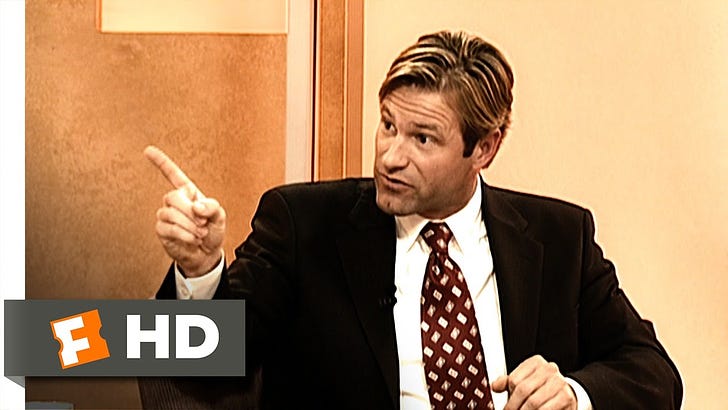Occasionally a great link for an issue comes in after the electrons have been sent to the presses. This week, we’re looking back at some previous topics in a new way.
Dan Cullum describes a risk register, where companies judge how severe a problem could be against the likelihood that the problem will happen. Much like we covered in #161, this could be a tool for writers looking to add complications to their story. What do your characters expect could go wrong? What’s unlikely, but would throw their planning into chaos?
Koraljka Suton looks at the career of Donald E. Westlake, the novelist and screenwriter whose stories became films like The Hot Rock, Point Blank, and The Grifters. When asked about the differences writing a film vs. a book, Westlake said:
“If I write a novel, I’m a god. If I write a screenplay, I’m a minor deity.”
Maris Kreizman suggests books start using a standardized end credits page, similar to how movies name everyone involved in production. In #179, we covered a wide range of topics about unearned credit (or blame), and the way Kreizman’s argument touches on other systemic issues in publishing fits in well with those other links.
More recently, reader Robert Bruinewood sent in an article by Ben Goldfarb that breaks down the concept of a hyperobject, and how Adam McKay worked to simplify the danger of a “massive, overwhelmingly complex thing.”
“A Styrofoam cup isn’t a hyperobject, but all the Styrofoam in the world is; a speck of plutonium isn’t, but all the plutonium ever produced is. You can’t touch hyperobjects, yet they shape human lives in tangible, often deleterious ways that leave us morally obligated us to deal with them.”
Our last issue covered ways expert opinions can be twisted, or when an expert isn’t the right expert for the moment. Adam Mastroianni looks at a parallel question: How can you tell when someone is a serious person (and how do you become one yourself)? Farnham Street weighs in with some questions to ask to determine if you’re dealing with an expert or an imitator. For example:
Imitators get frustrated when you say you don’t understand. That frustration is a result of being overly concerned with the appearance of expertise—which they might not be able to maintain if they have to really get into the weeds with an explanation. Real experts have earned their expertise and are excited about trying to share what they know.
👋 Are you new here?
Inneresting is a weekly newsletter about writing and things that are interesting to writers. Subscribe now to get more Inneresting things sent to your inbox.
Previously on Inneresting…
In case you missed it, last issue’s most clicked link Isaiah Photo attempts the documented morning routines of Cristiano Ronaldo, Mark Wahlberg, and Dwayne Johnson. It does not go well for him.
What else is inneresting?
Meg Miller shares a collection of better ways to end your emails than “Thanks much” or “Excelsior.”
Edgar B. Herrick III shows how every rainbow you see is unique to your position at that moment.
R.E.M. reunited to play one song together on stage. Just listen.
And that’s what’s inneresting this week!
Inneresting is edited by Chris Csont, with contributions from readers like you and the entire Quote-Unquote team.
Are you enjoying this newsletter?
📧 Forward it to a friend and suggest they check it out.
🔗 Share a link to this post on social media.
🗣 Have ideas for future topics (or just want to say hello)? Reach out to Chris via email at inneresting@johnaugust.com, Mastodon @ccsont@mastodon.art, or Bluesky @ccsont.bsky.social








